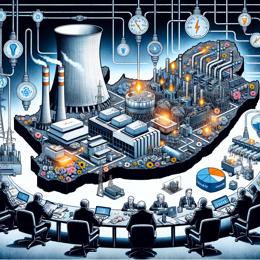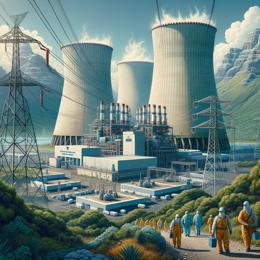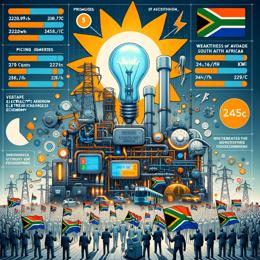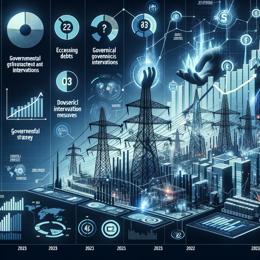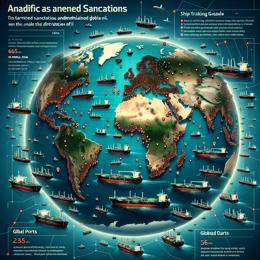Image created by AI
PetroSA Under Scrutiny for Contentious Offshore Gas Deal with Lawrence Mulaudzi's Equator Holdings
In a move that has raised eyebrows across South Africa’s energy sector, the national oil company PetroSA has entered into a significant partnership with Lawrence Mulaudzi's Equator Holdings—a company with a controversial background and opaque funding prospects. The concluded agreement entrusts Equator Holdings with refurbishing pivotal offshore gas infrastructure critical to government’s multi-billion-rand energy strategy, including works on the FA platform and Mossel Bay's gas refinery.
Lawrence Mulaudzi doesn't present the typical corporate partner profile. His name is heavily tagged with allegations and inquiries of corruption, notably by the Mpati Commission into the Public Investment Corporation (PIC), where his name surfaced 176 times in the final report. Furthermore, the financial sufficiency of Mulaudzi’s firm is highly questionable. With Absa repossessing his luxury vehicles and debt judgments tallying up to R2.8 million against him, there’s a shroud of doubt as to how Equator Holdings will manage to fund significant energy infrastructure projects.
Equator Holdings, while boasting of its alignment with PetroSA’s prerequisites and committing to supply security and rectify infrastructure bottlenecks in the energy sector, has raised serious concerns. A forensic examination of the deal suggested that PetroSA might have disregarded essential requirements such as a proven track record and financial stability when choosing Equator. The company’s prequalification for a project of such magnitude when even its entity's authenticity was previously under question marks the credibility of the procurement process and raises flags about the transparency within PetroSA.
The perplexity intensifies with the emergence of ‘arranged marriage’ between Theza Oil & Gas and Equator Holdings, creating an entity named EquaTheza with a skewed ownership structure favoring Theza. This arrangement seemingly mirrors past tactics that Mulaudzi was involved in at the PIC, suggesting a pattern of orchestrated partnerships that sideline formal governance processes.
The gas project at hand, quite apart from its technical demands, will require an injection of billions of Rands. Yet, PetroSA veils the funding details behind a non-disclosure agreement, leaving stakeholders in the dark about the solidity of the deal’s financial underpinnings. The prospect of securing such funds appears remote given Equator's and Mulaudzi’s checkered financial histories and the absence of commitment from prominent financial institutions like the PIC.
PetroSA's deal thus posits a myriad of questions: Is the deal the best strategy for South Africa's energy needs? Are due diligence and transparent processes being sacrificed for expediency or ulterior motives? Can South African citizens trust that their public institutions are operating in the nation's best interest? As scrutiny intensifies, the implications of the deal—for the integrity of public procurement, the viability of key energy infrastructure projects, and the trust of South African citizens in their institutions—are profound.


